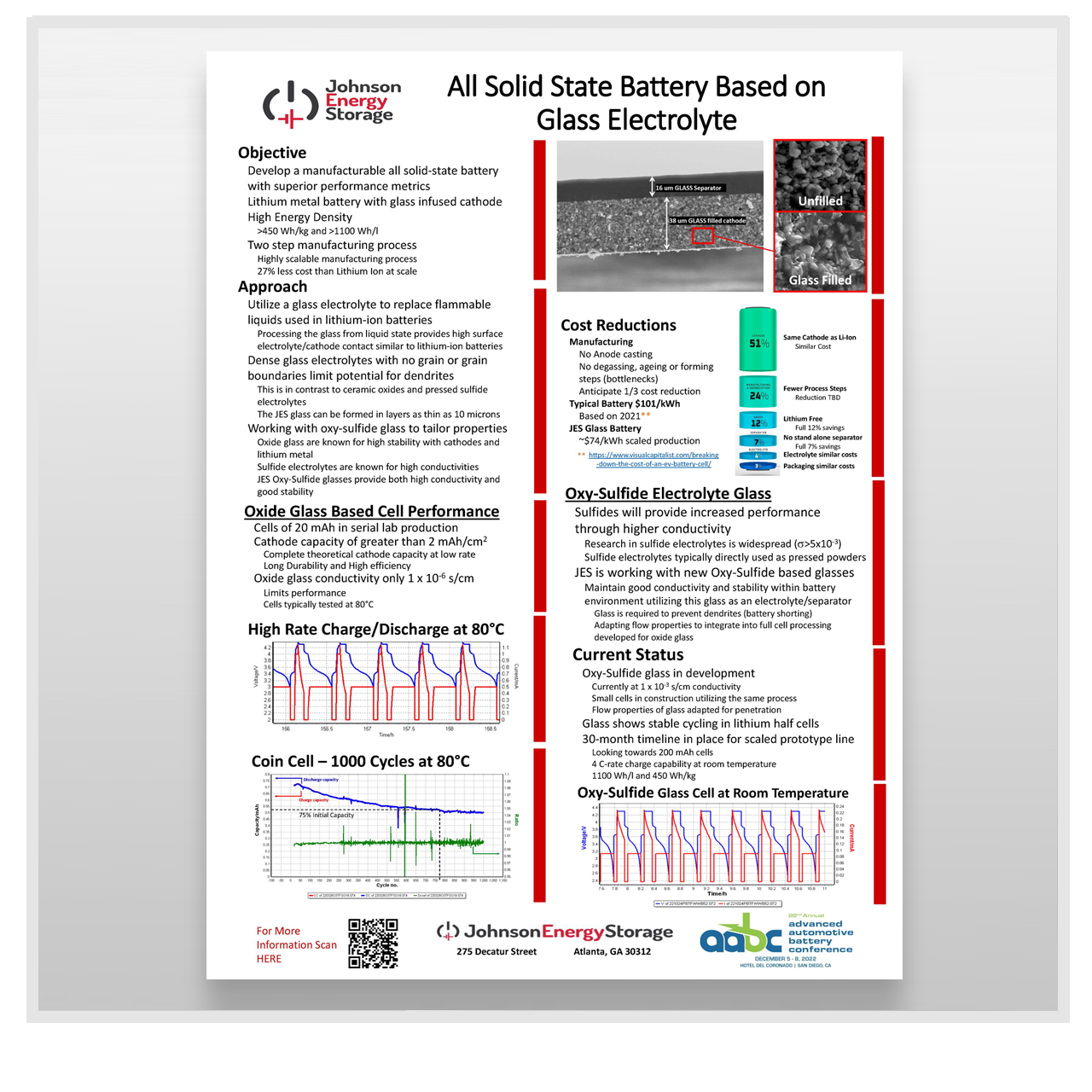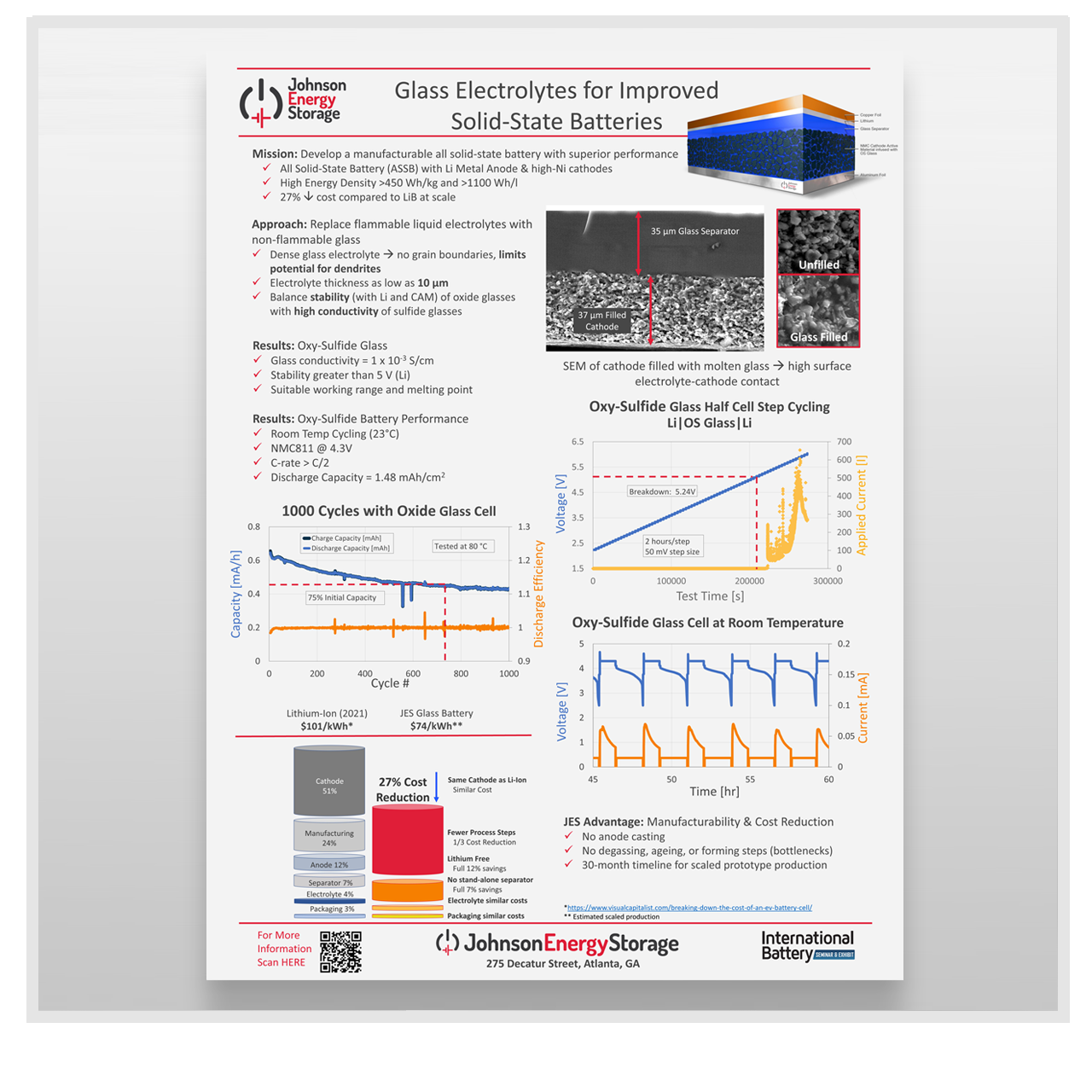Technology
All-Solid-State
Lithium Battery
SAFE, DENSE, ROBUST & AFFORDABLE
Our all-solid-state batteries (ASSB) are denser, more robust, less expensive to produce, and safer than lithium-ion batteries on the market today. Our ASSB is 2 times the energy density of lithium ion batteries in the same size and weight package. Our ASSB withstands higher and lower voltages than lithium-ion batteries and is designed for significantly lower self-discharge. Due to our unique, proprietary manufacturing process, the cost to manufacture our ASSB is 25% that of the current industry leaders. Our ASSB can operate at both high and low temperatures, making it intrinsically safer than lithium-ion batteries.
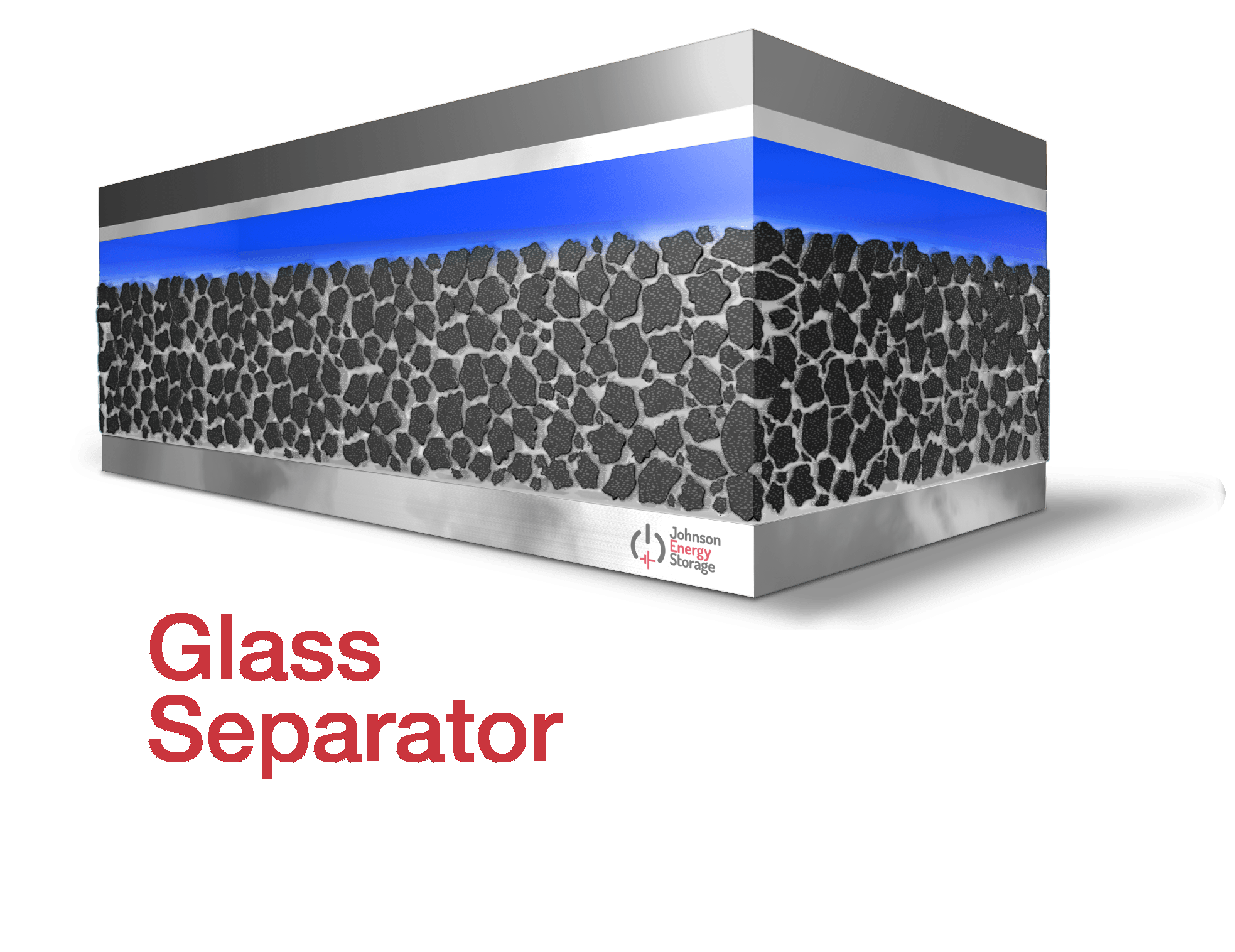
A glass electrolyte separator is the key to the advancement of all-solid-state lithium metal batteries. JES has developed and patented a hybrid oxy-sulfide glass electrolyte that has high ionic conductivity, suppresses lithium dendrites and is stable in contact with lithium metal anode and metal oxide cathode materials. It has demonstrated extended cycling capabilities, showing no signs of dendritic shorts or significant degradation in performance. JES’s glass electrolyte separator is stable up to 6.5V enabling the use of current and future high voltage cathode materials.
JES’s glass electrolyte separator penetrates deep inside the cathode structure to create cohesive intimate contact with the active cathode material. This type of infiltration allows for permanent long-life continuity throughout the cathode. Our cells do not rely upon pressed point contacts, liquids or gels unlike other solid-state battery companies.
JES
ALL-SOLID-STATE LITHIUM BATTERY
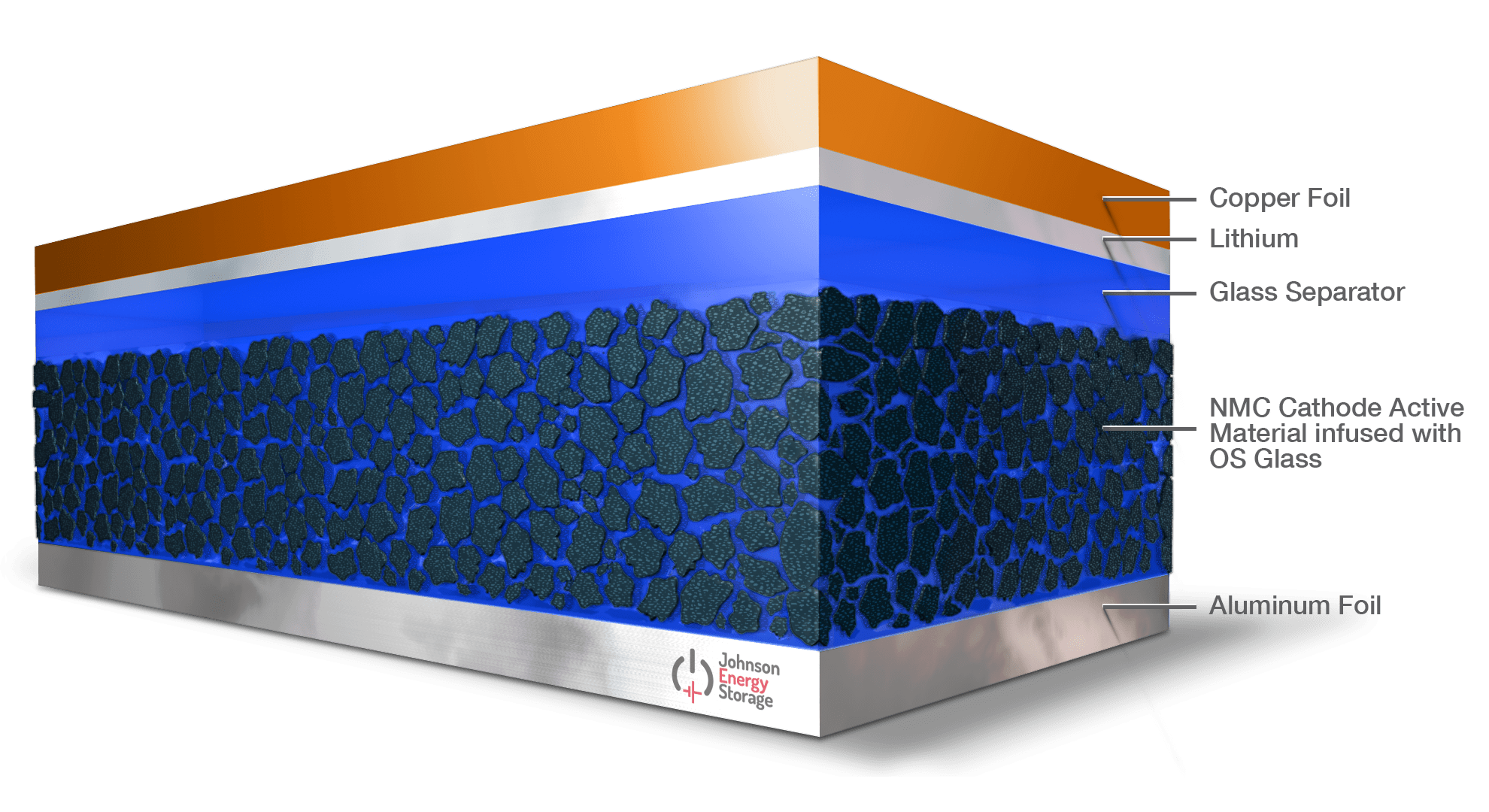
UNDERSTAND WHY OUR
ALL-SOLID-STATE LITHIUM BATTERY
BASED ON GLASS ELECTROLYTE
IN AN IMPROVEMENT
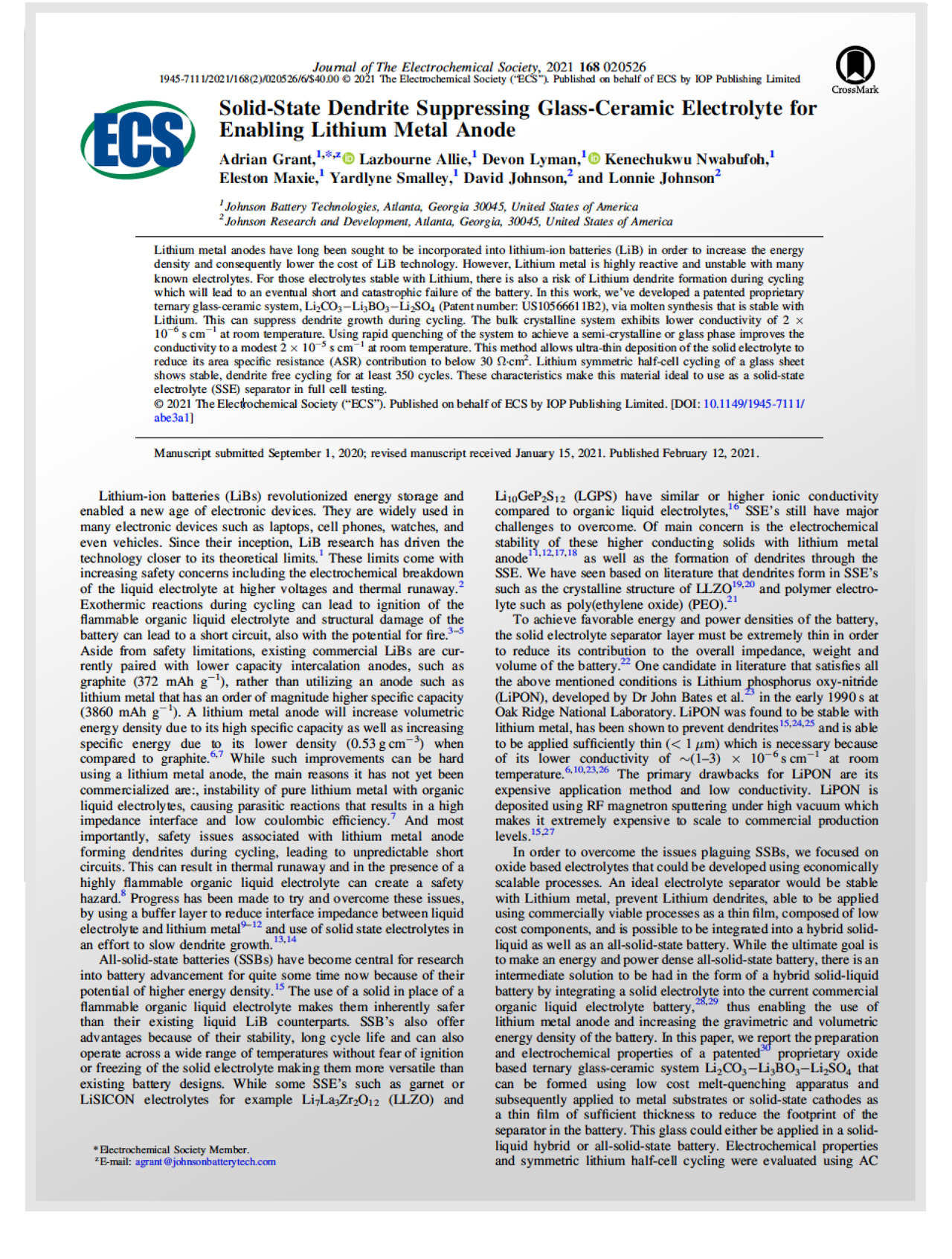
Adrian Grant, Lazbourne Allie, Devon Lyman, Kenechukwu Nwabufoh, Eleston Maxie, Yardlyne Smalley, David Johnson,and Lonnie Johnson.
© 2021 The Electrochemical Society (“ECS”).
Published on behalf of ECS by IOP Publishing Limited.
Solid-State Dendrite Suppressing Glass-Ceramic Electrolyte for Enabling Lithium Metal Anode
Lithium metal anodes have long been sought to be incorporated into lithium-ion batteries (LiB) in order to increase the energy density and consequently lower the cost of LiB technologies. However, Lithium metal is highly reactive and unstable with many known electrolytes. For those electrolytes stable with Lithium, there is also a risk of Lithium dendrite formation during cycling which will lead to an eventual short and catastrophic failure of the battery.
In this work, we’ve developed a patented proprietary ternary glass-ceramic system, Li2CO3−Li3BO3−Li2SO4 (Patent number: US10566611B2), via molten synthesis that is stable with Lithium. This can suppress dendrite growth during cycling. The bulk crystalline system exhibits lower conductivity of 2 × 10−6 s cm−1 at room temperature. Using rapid quenching of the system to achieve a semi-crystalline or glass phase improves the conductivity to a modest 2 × 10−5 s cm−1 at room temperature. This method allows ultra-thin deposition of the solid electrolyte to reduce its area-specific resistance (ASR) contribution to below 30 Ω·cm2. Lithium symmetric half-cell cycling of a glass sheet shows stable, dendrite-free cycling for at least 350 cycles.
These characteristics make this material ideal to use as a solid-state electrolyte (SSE) separator in full cell testing.


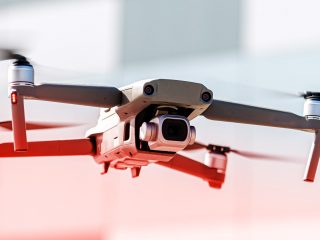
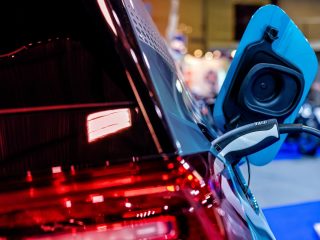
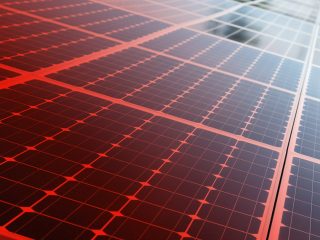

APPLICATIONS

Transportation

Energy & Utilities

Consumer Electronics

Manufacturing

Business

Robotics and AI

Medicine & Healthcare



